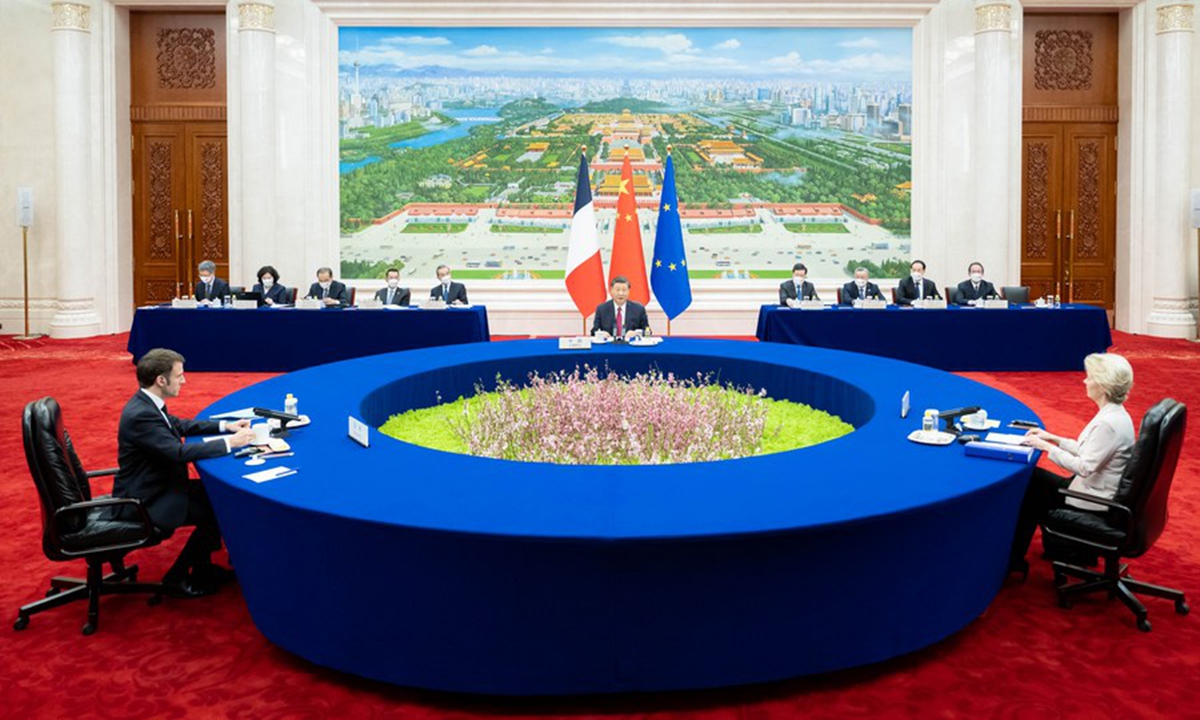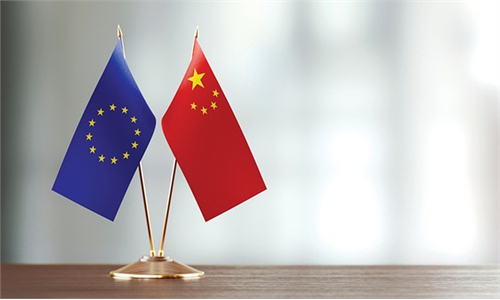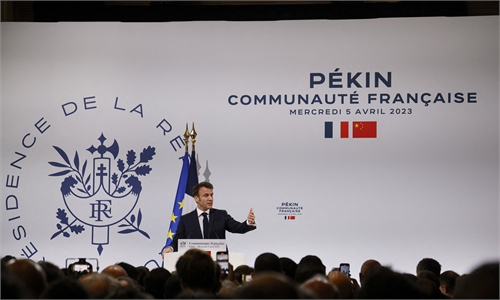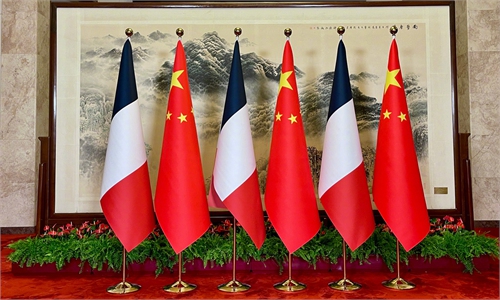Time to untangle the ‘Ukraine knot’ in China-EU relations: Global Times editorial

Chinese President Xi Jinping holds a trilateral meeting with French President Emmanuel Macron and European Commission President Ursula von der Leyen at the Great Hall of the People in Beijing, capital of China, April 6, 2023. (Xinhua/Zhai Jianlan)
After several important talks with French President Emmanuel Macron and European Commission President Ursula von der Leyen on April 6, Chinese President Xi Jinping held an informal meeting with Macron in Songyuan in Guangzhou on April 7. The atmosphere was friendly and relaxed. This is also the last day of Macron's visit in China. Before the visit was over, a series of remarkable results have been achieved. Among them, it is worth mentioning that China, France and Europe have reached many consensuses on the Ukraine issue, indicating that China and Europe can be all-round partners.After the Russia-Ukraine conflict broke out, some Europeans tied the Ukraine issue to China-EU relations, and Washington made this knot even tighter, making it the most prominent misunderstanding and misperception in Europe's current view of China. Untying this knot is an urgent task in China-EU relations, but it ultimately needs Europeans to solve it themselves.
For a while, some European political elites have linked the Ukraine issue to China-EU relations, even regarding it as one of the prerequisites for the development of China-EU relations. China cannot accept the "China responsibility" theory, and viewing bilateral relations solely from the perspective of the Ukraine crisis is shortsighted. China insists that China-EU relations are not targeted at, dependent on, or subjected to a third party. The Ukraine issue should not be an obstacle to China-EU communication, but an opportunity for both sides to strengthen coordination.
On April 6, Macron and von der Leyen expressed in their talks with President Xi that China is not the party that created the crisis, appreciated China's efforts to promote a political settlement, and looked forward to China playing a more important role. They are prepared to work with China to find a way to facilitate talks for peace. The EU hoped that China would play a more important role and said it was willing to work with China to find ways to bring about peace talks. These positive remarks indicate that China and the EU's positions on the Ukraine issue are getting closer, and the divergence is much narrower than what has been hyped by Western media. The most important consensus between the two sides is that they both hope for peace and are willing to make efforts to bring about peace talks. We understand Europe's strong security anxiety as a result of the Russia-Ukraine conflict, and we also hope Europe will believe in China's sincerity in promoting peace.
President Macron talked about the power of "respect." When dealing with non-Western countries, Western countries need to pay special attention to this, which to some extent is an issue left over from history. For many years, Western elites have consciously or unconsciously lectured others, and non-Western countries have become tired of it. In the Ukraine crisis, they made the same mistake again, as if following their opinions was the only correct and just thing to do. These people urgently need to learn "mutual respect" and respect others' differences and that they have the same natural rights, as well as China's independent judgment based on the historical twists and turns of the Ukraine issue. It needs to be emphasized that the friendly relations between China and Russia are actually conducive to resolving the Ukraine crisis, and are not subject to a third party, which also applies to China-EU relations.
We can sense a change in Europe's attitude toward China on the Ukraine issue, as well as its differences with Washington. As the conflict continues, Europe's losses and pain are increasing day by day, and its desire for peace talks and a political solution is becoming stronger, showing a "certain degree of convergence" with China's views. After the release of China's Position on the Political Settlement of the Ukraine Crisis, Europe's response was much more positive than that of the US, although there were still concerns and misunderstandings, and this has provided a foundation for China and Europe to move toward each other on the Ukraine issue. The Ukraine issue is not a deadlock in China-EU relations, and it can and should be resolved as soon as possible.
China and Europe have many consensuses on the world situation and historical trends. China has put forward the view that "the world is undergoing profound changes unseen in a century," and Europe believes that now is a "historical turning point." Macron and von der Leyen's visit to China demonstrates that China and Europe's need for each other is still growing in the current international environment, and communication can still be conducted "with respect, conviction, and friendship." Although competition in some areas has intensified and contradictions and differences still exist, cooperation is still the top priority. The key to fully satisfying the cooperation needs of both sides and unleashing the potential for cooperation is whether Europe can overcome political obstacles and external interference. We hope that Macron and von der Leyen's visit will bring about more positive changes in Europe in this regard.



